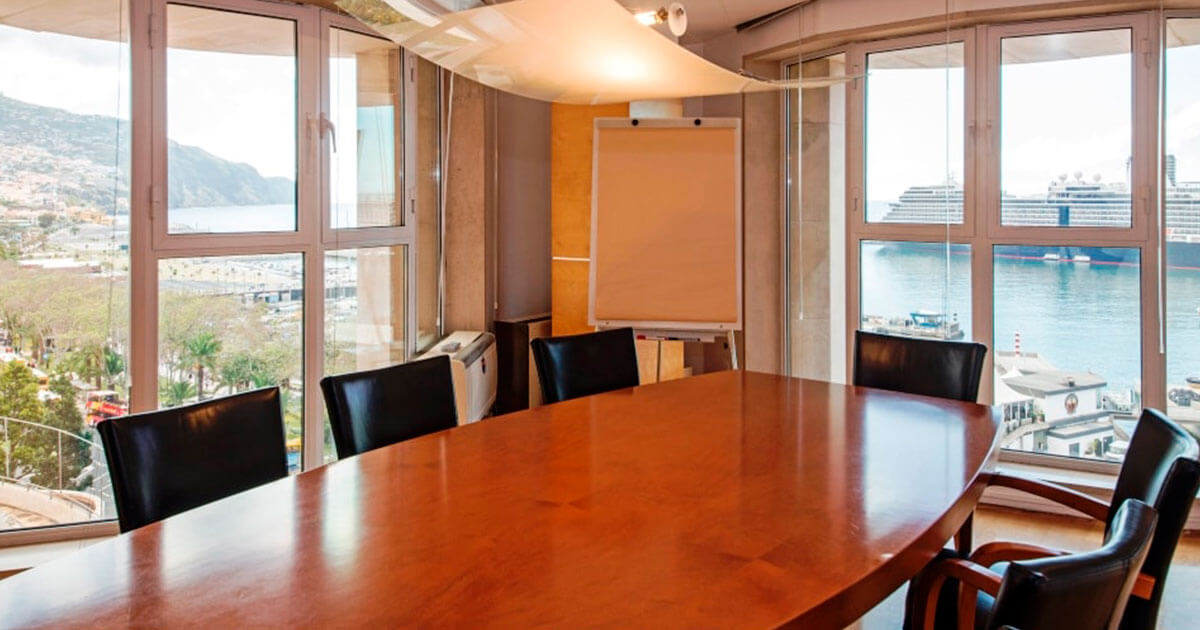Portugal, and more specifically Madeira, offers unique conditions for investors to locate not only their holding company but also their commercial and trading company. Keep reading our article to find out why.
Why Portugal? Why Madeira?
Cost and Quality of Living
Portugal ranks in the Top 30 Cheapest Countries in Europe (Numbeo), surpassing Spain, Malta, Greece, and France. Add this to the special tax regime available to new residents and businesses and your savings will increase even more.
Add that to the fact that Portugal ranks 1st in the World in the Quality of Life for Expatriates and is the 2nd best country in the World in leisure activities, you will rapidly understand why people have been relocating to Portugal in the last couple of years.
Furthermore, in the latest Global Peace Index, published by the Institute for Economics and Peace, Portugal ranks on the Top 3 Peaceful Countries in the World. In this index, Portugal ranks above Switzerland, Canada and Switzerland.
On the other hand, international Living ranks Portugal in the Top 10 Best Countries to Retire in the world and Investopedia ranks it 2nd best country to retire in Europe. Unlike Spain, Portugal has never suffered any terrorist attack to date.
If you are looking for the city with the best quality of life, and where you can enjoy cosmopolitan and yet calm island life, then Funchal is the place to be. The Portuguese consumer association has ranked Funchal as the second-best city to live in Portugal.
Political Stability and Legal System
Portugal has a strong tradition of political stability, with power alternating between the two main center parties since 1974. Given its constitutional system, premier-presidential, it is not unusual for these center parties to form coalitions with other minor parties in recent years.
The Autonomous Region of Madeira possesses its own political and administrative statute and has its own government. The branches of Government are the regional executive (Governo Regional) and the legislative assembly (Assembleia Regional). The assembly is elected by universal suffrage. Power in Madeira has been exercised by the same party since 1976.
The Portuguese Law system is part of the civil law legal systems, based on Roman Law. Since the 20th century, there has been a major influence from German civil law, a shift from the French influence of the previous century. Since 1986 European Union Law became the major driving force on corporate law, administrative law and civil procedure.
Portuguese Law has influenced the legal systems of Angola, Brazil, Cape Verde, Guinea-Bissau, Mozambique, São Tomé and Príncipe, Timor-Leste, the State of Goa (India) and the Special Administrative Region of Macau (China).
Portugal is the only country in Top 6 Most Powerful Passport Index (Visa-Free Score of 185 countries) to have the most cost-efficient Residency and Citizenship by Investment in Europe.
According to the Cato Institute’s Human Freedom Index, Portugal ranked among the Top 20 Countries, surpassing France, Spain and Greece pertaining to economic and personal freedoms.
As for religious, bio-ethical, family and gender freedoms, Portugal ranks in the world Top 3 in the World Index of Moral Freedom, surpassing all the G20 countries in these fields. Portugal is also among ILGA-Europe’s Rainbow Index Top 10 European countries in respect to LGBTQI equality, surpassing countries like the United Kingdom, Norway, Sweden, Germany, France and the Netherlands.
Qualified Workforce and Low Operational Costs
Portugal has a vast network of prestigious private schools and state-run Universities scattered across the country (including Madeira), to which those residing in Madeira can apply.
Universities in Portugal rank among the Top 500 in the international Shanghai Ranking and have European renowned colleges in the engineering, economics and medicine, such as Instituto Superior Técnico and Aveiro University (both with audited courses by the European Network for Accreditation of Engineering Education (EUR-ACE Accreditation Program)); Nova School of Business and Economics and Católica Lisbon School of Business and Economics (both certified by the Association to Advance Collegiate Schools of Business International Accreditation, EQUIS – EFMD Quality Improvement System Accreditation; and the Association of MBAs Accreditation), with the first being a Member of CEMS Global Alliance in Management Education.
The Portuguese labour force is also known for its language skills, being ranked 7th in World by the IMD World talent report).
Operational costs in Portugal, from human resources and managing services perspective, are the lowest in Western Europe.
Holding Companies in Portugal
Under Portuguese law, a pure holding company (SGPS – Sociedades Gestoras de Participações Sociais), has the sole contractual purpose of managing stakes in other companies as an indirect form of economic activity, the taxation for this structure is the same as that of any other commercial company.
Nevertheless, any commercial company with a broad business purpose that includes the possibility of holding stakes in other companies can benefit from the mechanisms stipulated in Portuguese and European tax law for eliminating double taxation on the ensuing income, as long as certain requirements have are met. As such, investors may hold stakes in addition to the undertaking of their commercial activity, through a single company.
General Overview of the Taxation of Holding Companies in Portugal
- Participation exemption for dividends and capital gains
- Application of the parent-subsidiary directive
- An extensive network of agreements to avoid double taxation
- Applicable double taxation tax credit
- Corporate income tax rate: 20% (in the Autonomous Region of Madeira) or 5% if duly licensed to operate within the International Business Center of Madeira
Taxation of Holdings in Madeira (Portugal)
Apart from the considerable tax benefits granted under the Portuguese tax law, described below, Portuguese holding companies resident in the Autonomous Region of Madeira and duly licensed to operate within the International Business Center of Madeira will also benefit from the following tax advantages:
- The corporate income tax rate is 5%
- No withholding tax on royalties, services or interest paid to third parties
- Exemption from withholding tax in the distribution of dividends to shareholders
- Exemption from withholding tax upon payment of interest and other forms of remuneration through increases, allowances or advances to shareholders
- An 80% reduction in stamp duty, Real Estate Transfer Tax (IMT) and Municipal Property Tax (IMI), regional and municipal surcharges and taxes, and notary and registration fees.
- Reduction in the special payment on account and autonomous taxation in proportion to the applicable corporate income tax rate (in this case, a 76.2% reduction).
- Commercial or trading activities performed by the Madeira company shall be taxed in accordance with the income tax rate applicable to companies licensed within the scope of MIBC, i.e. 5%.
Conditions for Participation Exemptions
- The Portuguese company holds, directly or indirectly, and continuously, for the 12 months that precede the distribution or transfer, a participation that is no less than 10% of the shareholder capital or the voting rights of the entity that distributes the profits/reserves or whose participation has been transferred (in the case of distribution of profits, if the participation has been held for less time, it must be maintained throughout the time necessary to complete the 12 months);
- The participated company is subject to and not exempt from corporate income tax (in the case of Portuguese companies), any tax referred to in the Parent-Subsidiary Directive (companies resident in the EU) or a tax of an identical or similar nature to that of corporate income tax, provided that the rate applicable to said entity is not less than 60% of the corporate income tax rate (other cases);
- The participated company is not resident in a tax haven;
- The distributed profits/reserves do not correspond to costs deductible by the entity that distributed it;
- The participated company is not subject to a tax transparency regime.
There is also the possibility of making use of the unilateral tax credit for international double taxation.
If participation exemption requirements are not met, there is the possibility of considering only half (50%) of the capital gains generated if such capital gains are reinvested. This possibility is subject to certain conditions
Conditions for the Taxation of Interests
European Directive 2003/49/EC, allows for the payment of interest and royalties between companies in the EU to be exempt from taxation, provided that the following requirements are met:
- Both companies meet the criteria of one of the corporate forms stipulated in the Directive Annex;
- Both are subject to income tax;
- The direct capital relationship between both companies is 25%, or if both are directly held in 25% by a third party fulfilling the two above-mentioned requirements, if in both cases the stake has been held for at least two years;
- The company to which the interest or royalty payments are made is the beneficial owner of such income, which shall be deemed to be the case when it earns the income for its own account and not as an intermediary, and where a permanent establishment is deemed to be the beneficial owner, the credit, right or use of information from which the income derives is effectively related to the activity carried out through its intermediary and constitutes taxable income for the purpose of determining the profit attributable to it in the Member State in which it is situated.
Portuguese, and companies duly licensed to operate within the International Business Center of Madeira, companies fulfill the first two requirements. If the third and fourth ones are also met, it shall be possible for entities resident in another EU Member State to pay interest or royalties to Portuguese companies without paying withholding tax in the State of origin and vice-versa.
Conditions of the Taxation of Dividends
Dividends distributed by a Portuguese company to its shareholders who are natural persons shall be taxed in accordance with the Personal Income Tax Code (28%) unless they are not resident in Portugal and the company is licensed to operate within the scope of the International Business Center of Madeira or a double taxation treaty is applied.
Profit or dividends distributed by a Portuguese company to shareholders that are legal persons, are exempt, provided that they:
- Are residents either in Portugal, in the EU, in the European Economic Area (provided that administrative cooperation is guaranteed with respect to taxation in terms equivalent to those established in the EU); or in jurisdiction with which Portugal has signed a currently valid agreement for avoiding double taxation and allowing for exchange of information.
- Are subject to and not exempt from Corporate Income Tax (Portuguese companies), a tax mentioned in the Parent-Subsidiary Directive (companies resident in the EU) or a tax that is identical or similar to Corporate Income Tax, provided that the rate applicable to the entity is not less than 60% of the corporate income tax rate (other cases).
- Hold, directly or indirectly, a participation that is no less than 10% of the shareholder capital or the voting rights of the Portuguese company.
- Hold a participation in the Portuguese company in a manner that has been uninterrupted during the 12 months prior to the distribution date.
Taxation of Capital Gains
Capital gains earned by non-residents of Portugal from the sale of a shareholding in a Portuguese company shall not be taxed if the company’s main assets do not include real estate in Portugal. This exemption shall not apply to shareholders residing in tax havens.
Our team at MCS, with more than 20 years of experience in the sector, is able to assist you in setting up and managing a company within the MIBC or Portugal. For more information click here.

Miguel Pinto-Correia holds a Master Degree in International Economics and European Studies from ISEG – Lisbon School of Economics & Management and a Bachelor Degree in Economics from Nova School of Business and Economics. He is a permanent member of the Order of the Economists (Ordem dos Economistas)… Read more




